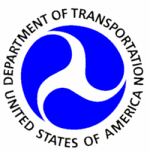Thu, Dec 16, 2010
Panel Calls On FAA To Assist In Funding NextGen Equipment On
Aircraft
The Future of Aviation Advisory Committee (FAAC) advisory panel
delivered its list of recommendations on how to address challenges
faced by the U.S. aviation industry to U.S. Transportation
Secretary Ray LaHood on Wednesday. Among the recommendations
presented by the committee are proposals that federal government
assist in funding NextGen equipage on aircraft, ensure greater
transparency for consumers in airline pricing, expand the sources
of safety data available to the Federal Aviation Administration
(FAA), and ensure that global airline alliances enhance the
viability and competitiveness of the U.S. aviation industry.

The FAAC, created in April, presented 23 specific
recommendations to Secretary LaHood on how to ensure the strength,
competitiveness and safety of aviation. The committee's 19
members represented airlines, airports, labor, manufacturers,
environment, finance, academia, consumer interests, and general
aviation stakeholders.
"This committee has provided a valuable service to all members of
the aviation community with this blueprint for the industry,"
Secretary LaHood said. "As we move forward, these
recommendations will provide valuable guidance for making the
world's greatest aviation system even greater. I thank the
members of the committee for their hard work and dedication, and I
look forward to thoroughly reviewing the recommendations."

Ray LaHood
The committee focused principally on five issue areas:
ensuring aviation safety, ensuring a world-class aviation
workforce, balancing the industry's competitiveness and viability,
securing stable funding for aviation systems, and addressing
environmental challenges and solutions.
Other specific recommendations include:
- Developing improved methods of predicting safety risks.
- Incorporating safety standards into planning for NextGen, the
FAA's overhaul of the national airspace system.
- Improving links between airports and other forms of
transportation.
- Enhancing science and technology training for the future and
current aviation workforce.
- Ensuring that aircraft operators are able to realize the
benefits of NextGen as quickly as possible.
- Reducing aviation's impact on the environment through use of
sustainable fuels and improved aircraft technology, as well as
accelerating the use of NextGen equipment to promote greater
efficiency.
The Department of Transportation will now review the
recommendations and develop a plan for their implementation.
Members of the FAAC will be invited to attend periodic briefings to
update them on the progress in implementing their
recommendations.
More News
“These new aircraft strengthen our ability to respond quickly, train effectively and support communities nationwide. Textron Aviation has been a steadfast supporter in helpin>[...]
From 2011 (YouTube Edition): Rugged, Legendary, STOL Twin Makes A Comeback The de Havilland Twin Otter is an airplane with a long history, and it gained a reputation as a workhorse>[...]
A Wind Gust Lifted The Right Wing And The Airplane Turned To The Left Analysis: The pilot was departing from a 2,395-ft-long by 50-ft-wide turf runway. The pilot reported that afte>[...]
Have A Story That NEEDS To Be Featured On Aero-News? Here’s How To Submit A Story To Our Team Some of the greatest new stories ANN has ever covered have been submitted by our>[...]
Braking Action Advisories When tower controllers receive runway braking action reports which include the terms “medium," “poor," or “nil," or whenever weather con>[...]
 Aero-News: Quote of the Day (12.18.25)
Aero-News: Quote of the Day (12.18.25) Classic Aero-TV: Viking Twin Otter 400--Bringing the DHC-6 Back Into Production
Classic Aero-TV: Viking Twin Otter 400--Bringing the DHC-6 Back Into Production NTSB Final Report: Rans Employee Flying Club Rans S-6ES Coyote II
NTSB Final Report: Rans Employee Flying Club Rans S-6ES Coyote II ANN FAQ: Submit a News Story!
ANN FAQ: Submit a News Story! ANN's Daily Aero-Term (12.18.25): Braking Action Advisories
ANN's Daily Aero-Term (12.18.25): Braking Action Advisories




